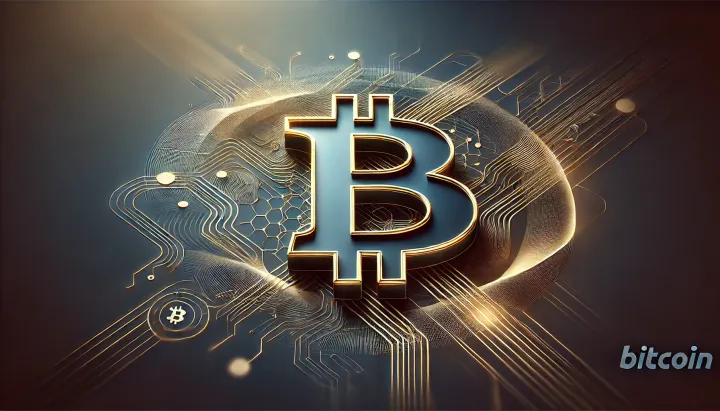Bitcoin as a Reserve Currency: Key Insights for the Future of Finance
The November 6, 2024 episode of the Bitcoin for Millenials podcast features Marty Bent discussing Bitcoin’s potential to disrupt fiat currency systems, emphasizing its stability amid central bank inefficiencies and inflationary risks.

- My 'briefing notes' summarize the content of podcast episodes; they do not reflect my own views.
- They contain (1) a summary of podcast content, (2) potential information gaps, and (3) some speculative views on wider implications.
- Pay attention to broadcast dates (I often summarize older episodes)
- Some episodes I summarize may be sponsored: don't trust, verify, if the information you are looking for is to be used for decision-making.
Summary
The November 6, 2024 episode of the Bitcoin for Millenials podcast features Marty Bent discussing Bitcoin’s potential to disrupt fiat currency systems, emphasizing its stability amid central bank inefficiencies and inflationary risks. His analysis suggests that Bitcoin fosters individual economic sovereignty and promotes long-term financial planning, making it a viable reserve currency alternative. Bent also outlines how early Bitcoin adoption, as seen in nations like El Salvador, could provide strategic economic benefits, ultimately steering global financial systems toward decentralized frameworks.
Take-Home Messages
- Decentralized Financial Control: Bitcoin empowers individuals by removing reliance on centralized financial systems.
- Economic Stability through Bitcoin: Bitcoin’s limited supply offers a safeguard against inflation, unlike traditional fiat.
- Early Adopters Gain Advantages: Nations adopting Bitcoin early, such as El Salvador, may secure a strategic edge.
- Shift to Long-Term Financial Thinking: Bitcoin encourages saving and economic planning, challenging fiat’s short-term focus.
- Potential for Bitcoin-Backed Loans: Bitcoin-backed credit products could provide a stable foundation for lending markets.
Overview
In this November 6, 2024 episode of the Bitcoin for Millenials podcast, Marty Bent addresses Bitcoin’s potential to reshape global financial systems by positioning it as an alternative to fiat currencies. He critiques central banks’ ongoing policy failures, particularly their difficulty managing inflation and debt. By comparison, Bitcoin’s rule-based monetary system, free from subjective policy decisions, offers a transparent and predictable framework. This transparency could reduce individuals’ reliance on fiat, granting them greater financial autonomy.
Bent also highlights how Bitcoin encourages a long-term financial perspective (low time preferences), contrasting with fiat’s tendency to promote short-term consumption. He argues that Bitcoin adoption fosters resilience by allowing people to protect their savings from inflationary pressures. This mindset has broader implications for personal and economic stability, positioning Bitcoin as a tool for fostering responsible financial behavior.
The conversation shifts to practical applications, with Bent suggesting that Bitcoin could serve as “pristine collateral” for credit products, paving the way for Bitcoin-backed loans and mortgages. This approach, he explains, could improve economic resilience by reducing dependency on fiat-backed assets, providing a stable foundation for lending institutions. Such financial products could eventually enter mainstream markets, creating broader economic stability.
Bent concludes with insights on global adoption trends, referencing El Salvador’s early embrace of Bitcoin. He believes that such moves create a competitive advantage for adopting nations, setting a precedent for others to follow. The potential for international Bitcoin competition suggests that future global finance may lean towards decentralized, sovereign-controlled systems.
Stakeholder Perspectives
- Individual Investors: Bitcoin offers a hedge against inflation, granting individuals control over their savings and financial futures.
- Governments: Bitcoin’s decentralized nature challenges traditional tax structures, compelling governments to explore new fiscal approaches.
- Financial Institutions: Traditional banks may benefit from Bitcoin-backed products but face initial challenges in regulatory compliance.
- Developing Nations: Bitcoin provides an opportunity for financial inclusion, bypassing conventional banking hurdles and fostering economic growth.
Implications
Bent highlights Bitcoin’s potential to redefine economic sovereignty by minimizing dependence on fiat currency, influencing both personal finance and national policy. As Bitcoin adoption grows, governments may need to adapt regulatory and tax frameworks to ensure compliance without compromising Bitcoin’s decentralized principles.
Future Outlook
Bitcoin’s rise as a potential reserve currency could accelerate as fiat systems struggle with rising inflation and debt. Nations adopting Bitcoin may benefit economically, pushing others to consider Bitcoin as a reserve asset to gain a competitive edge. Governments will likely need to reconcile Bitcoin’s decentralized nature with existing fiscal frameworks, shaping new regulatory landscapes.
On the financial front, Bitcoin’s potential to back credit products could reduce reliance on traditional collateral, enhancing stability. With Bitcoin’s fixed supply providing a hedge against inflation, we may see a gradual transition in lending markets towards Bitcoin-backed instruments, allowing for more secure and resilient economic planning.
Information Gaps
- How do central banks’ policy failures impact public trust, and what role could Bitcoin play in restoring trust? Public confidence in monetary policy has eroded, making it crucial to understand Bitcoin’s role in building a more predictable financial landscape.
- What economic advantages could Bitcoin-adopting nations gain, and how can others replicate their success? The benefits observed in early adopters, such as El Salvador, may inspire strategic adoption in other nations, influencing global economic structures.
- How can Bitcoin-backed credit products strengthen economic stability, and what conditions are essential for their adoption? Investigating the role of Bitcoin-backed loans in stabilizing credit markets could reveal pathways for broader financial resilience.
- What challenges would large fiat-dependent economies face in a transition to Bitcoin? Understanding the hurdles for economies heavily invested in fiat could support smoother transitions and minimize potential disruptions.
- Which educational methods can effectively promote understanding of Bitcoin’s principles over fiat currency? Widespread adoption hinges on clear, accessible education that differentiates Bitcoin’s decentralized nature from traditional fiat.
Broader Implications
Global Financial Stability
Bitcoin’s fixed supply and transparent monetary policy offer a predictable alternative amid fiat currency instability, making it attractive for individuals and nations facing inflationary pressures. As more countries adopt Bitcoin, it may lead to a more diversified and resilient global financial system, reducing dependency on fiat-based models. Bitcoin’s decentralized structure also minimizes systemic risk from centralized monetary policy missteps, offering a form of economic stability previously unavailable.
Sovereign Monetary Control
For nations, adopting Bitcoin represents a move towards sovereignty in monetary policy, challenging central banks’ traditional role in managing economies. Countries that implement Bitcoin as a reserve asset could reduce reliance on debt-driven fiat currencies, creating a buffer against foreign economic shocks. This trend could drive international competition as countries seek the economic advantages of Bitcoin, influencing global financial hierarchies.
Personal Economic Sovereignty
Bitcoin empowers individuals to control their financial assets independently of government influence, appealing to those seeking protection from fiat devaluation and financial oversight. By adopting Bitcoin, individuals gain access to a decentralized monetary system that secures wealth across borders without reliance on traditional banks. As adoption grows, Bitcoin could become a fundamental tool for personal economic resilience and independence.
Innovative Financial Products
Bitcoin’s suitability as collateral introduces potential for innovative financial products, especially in lending markets. Bitcoin-backed credit products offer a stable, inflation-resistant foundation, benefiting both lenders and borrowers in volatile fiat-based economies. If widely adopted, these products could create a more secure credit landscape, gradually lessening dependence on fiat-backed loans.
Financial Inclusion
In developing economies, Bitcoin enables financial inclusion by providing a stable currency alternative accessible via digital platforms. For regions with limited banking infrastructure, Bitcoin offers an entry point to participate in global markets, bypassing traditional financial barriers. As Bitcoin becomes more accessible, it could democratize financial opportunities, leveling economic disparities globally.



Comments ()